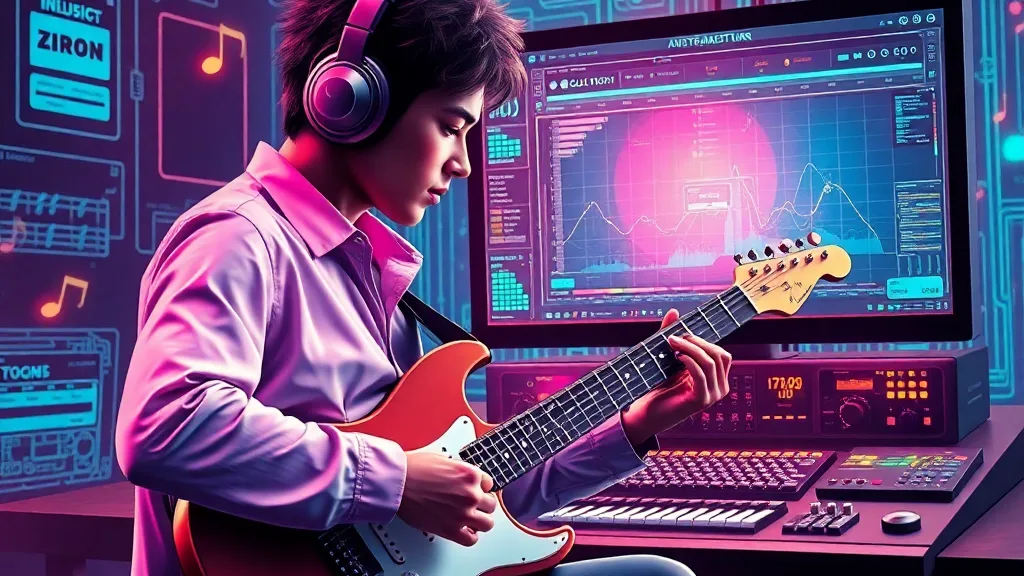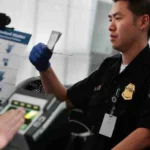Understanding AI Voice Song Cover Technology
An AI voice song cover refers to a track where artificial intelligence mimics a singer’s voice to perform a song, even if that singer never actually sang it. It’s like having your favorite artist perform a cover song they never touched, all thanks to machine learning.
The technology behind these covers involves training a model on hours of audio from a particular voice. Once trained, the AI can take a vocal input or melody and “recreate” it in the style, tone, and pitch of that chosen voice. In other words, the AI acts like a musical impersonator, only more accurate, more consistent, and fully digital.
This innovation has sparked curiosity, excitement, and concern in equal parts across the music industry.
How AI Covers Work Behind the Scenes
To make an AI voice cover, the process typically follows these steps:
- Voice Sample Collection – The AI is trained using voice recordings from a particular artist. This could be singing, speaking, or a mix of both.
- Model Training – Deep learning models analyze pitch, inflection, cadence, tone, and other vocal features.
- Input Song Processing – A song’s vocal track (or lyrics and melody) is provided to the AI.
- Voice Conversion – The AI regenerates the vocals using the trained model, reproducing the song in the target voice.
- Mixing and Output – The vocals are mixed with music to create a polished final product.
Some tools even allow users to clone their own voice or tweak AI-generated vocals to add emotional depth, vibrato, or harmonies.
Why AI Voice Song Covers Are Trending
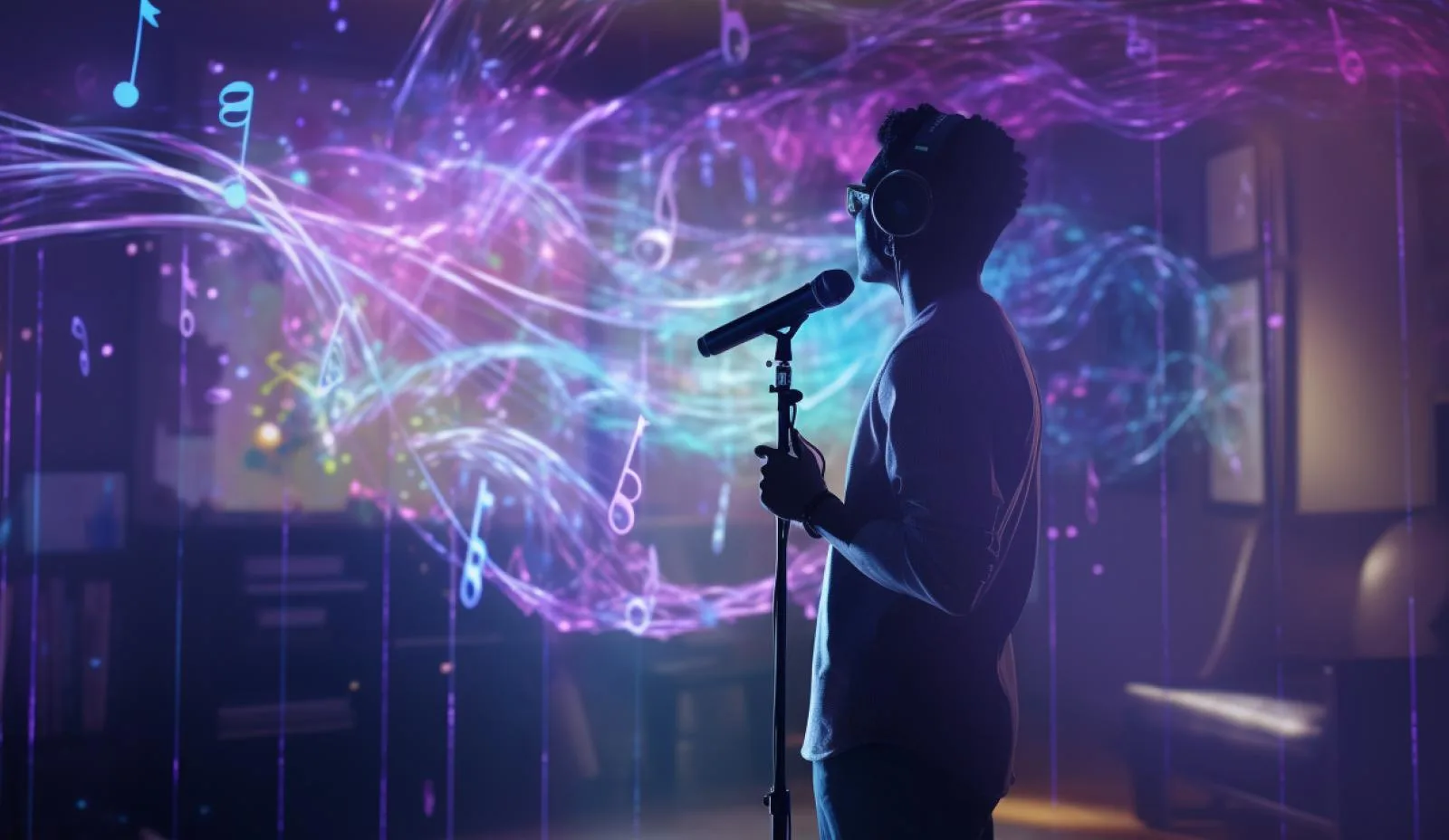
In recent years, AI-generated music has exploded in popularity. Covers using AI voices are not only trending on social media platforms but also making waves in the commercial music scene.
What’s fueling this trend?
- Creative Curiosity – People love to explore how different artists would sound singing songs outside their genre.
- Fan Engagement – Fans are using AI tools to generate fictional collaborations, often going viral.
- Low-Cost Music Creation – Independent musicians and producers can now generate high-quality vocals without hiring singers.
- Speed and Flexibility – What used to take weeks of recording and editing can now be done in hours or even minutes.
The potential for personalized music, custom vocals, and even posthumous performances is reshaping what it means to produce music.
Benefits of Using AI Voice Song Covers
Let’s look at the specific advantages of AI covers:
1. Creative Freedom
You’re no longer limited by your vocal range or talent. Want to hear an opera singer perform a hip-hop song? Now it’s possible.
2. Fast Production
AI tools can generate realistic vocals in minutes. That means more time to focus on composing, mixing, or experimenting.
3. Affordable Music Creation
Hiring a professional vocalist or booking a studio can be expensive. With AI, the costs drop significantly, often to zero for hobbyists.
4. Accessible to Beginners
No technical training or singing ability is required. Many platforms offer user-friendly interfaces that let anyone create an AI voice cover.
5. Non-Stop Experimentation
You can tweak, edit, and replay vocals as much as you like until you get the exact sound you want. It’s like having unlimited studio sessions.
Risks and Concerns Around AI Covers
Of course, no technology comes without drawbacks. While AI voice song covers are exciting, they raise some important concerns.
1. Ethical Dilemmas
Using someone’s voice without their permission, especially if they’re a public figure or a deceased artist, opens up a can of worms. Some see it as tribute; others view it as exploitation.
2. Copyright Issues
AI voice covers may use melodies, lyrics, or voices under copyright protection. Without permission, using or publishing these covers could lead to takedowns or legal action.
3. Loss of Authenticity
While AI-generated vocals are improving fast, they sometimes lack the emotional nuance and imperfections that make a human voice relatable.
4. Artist Control
Artists may lose control over how their voice is used. This includes the possibility of fake or misleading recordings being passed off as real.
5. Over-Saturation
As more people gain access to AI tools, the internet risks becoming flooded with repetitive, low-quality covers.
Real-World Use Cases of AI Song Voice
AI voice song covers are being used in many interesting and innovative ways:
- Fan-Made Mashups – Fans are creating duets between artists who never collaborated in real life.
- Posthumous Tributes – AI is being used to recreate the voices of legendary singers for tribute songs or unfinished projects.
- Game and Film Soundtracks – AI vocals can quickly create customized music scores with unique voices.
- Personalized Music – Users can create songs with their own AI-cloned voice, or that of a favorite character or celebrity.
- Educational Tools – Music students and composers are using AI covers to test arrangements, vocal dynamics, and more.
This kind of flexibility opens the door to new forms of storytelling through sound.
Real Examples of AI Voice Song Cover Success
Some AI voice covers have even gone viral or made headlines:
- A track with AI-generated vocals mimicking two top-charting pop stars gained millions of plays online before being removed.
- Several AI tools have re-imagined what classic songs would sound like if performed by different modern artists.
- Fan-generated videos on platforms like TikTok and YouTube have drawn huge attention by pairing AI vocals with visually creative content.
These examples show the power and reach, of this emerging musical tool.
Who’s Using AI for Voice Covers?
Not just tech-savvy musicians. Here’s a look at who’s jumping into the AI music game:
- Bedroom Producers – Making their own music without vocalists.
- Content Creators – Adding AI covers to skits, parodies, or fan edits.
- Students and Teachers – Exploring music composition in classrooms.
- Music Hobbyists – Experimenting with voices for fun.
- Marketing Teams – Creating custom jingles and audio branding quickly.
Basically, if you’ve got an idea and a song, AI tools are ready to bring your imagination to life.
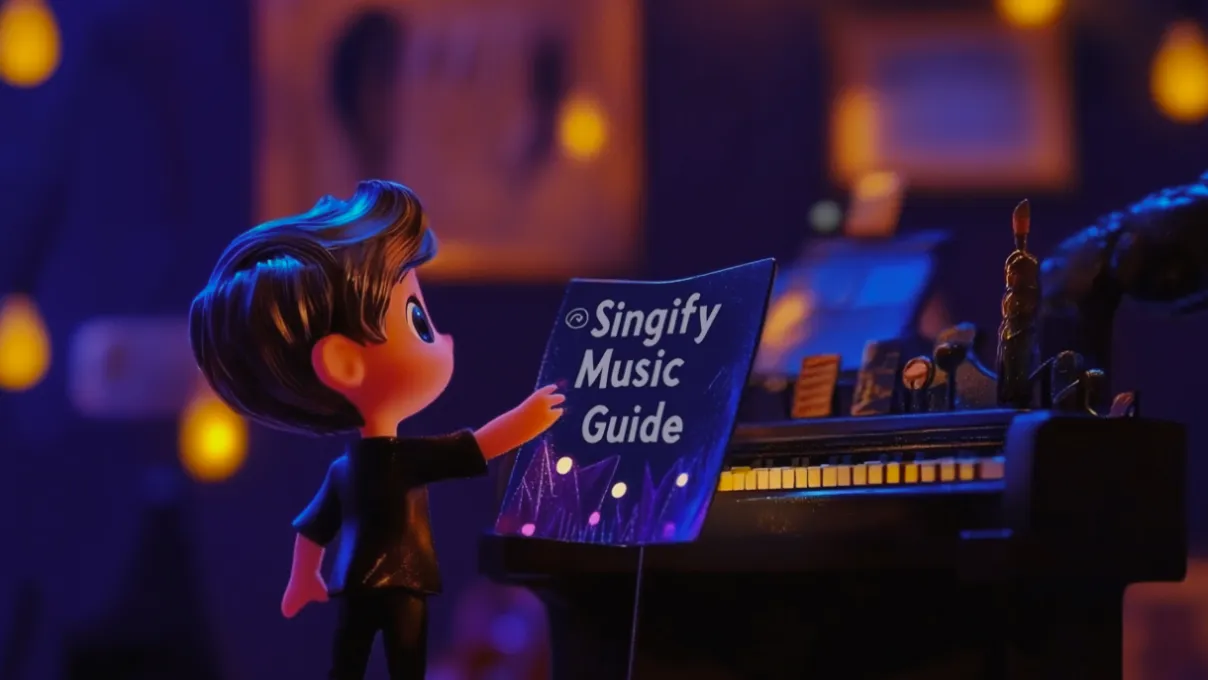
Want your AI song cover to sound polished and realistic? Follow these tips:
1. Use High-Quality Audio
Start with clean and clear audio. The better your input, the better the AI output.
2. Choose the Right Voice
Pick a voice that matches the style of the song. A rock voice for a jazz ballad might not work unless that’s your artistic intent.
3. Adjust Emotion and Tone
Some tools let you modify how happy, sad, or aggressive the vocals sound. Use these features to match the mood of your track.
4. Separate Instrumentals
Use tools to isolate vocals or instruments if you’re working with existing songs. This helps with cleaner mixing.
5. Preview and Refine
Always listen through a few times. Make tweaks and adjust elements like pitch, pacing, and timing.
AI Voice Song Cover vs. Human Vocals
Let’s compare what each option offers:
| Feature | AI Voice Cover | Human Vocalist |
| Cost | Low or free | Medium to high |
| Speed | Instant to fast | Days or weeks |
| Emotion and Expression | Improving, not perfect | Natural and deep |
| Customization | Very high | Depends on the singer |
| Availability | 24/7, always ready | Needs scheduling |
The gap between AI and human vocals is shrinking, but some still prefer the raw emotion a real singer brings.
Is It Legal to Make AI Voice Covers?
That depends on how and where you use them.
- Personal Use: Generally okay, especially if you’re just experimenting or sharing with friends.
- Public or Commercial Use: You could face legal problems if you use copyrighted music, lyrics, or voices without permission.
- Voice Rights: Public figures may have legal protections over how their voice is used, even in digital form.
- Fair Use: Might apply in some cases (e.g., parody or critique), but it’s a legal gray area.
If you’re planning to monetize or publish your AI covers, it’s best to consult legal advice or stick to royalty-free sources.
Will AI Voice Song Covers Replace Singers?
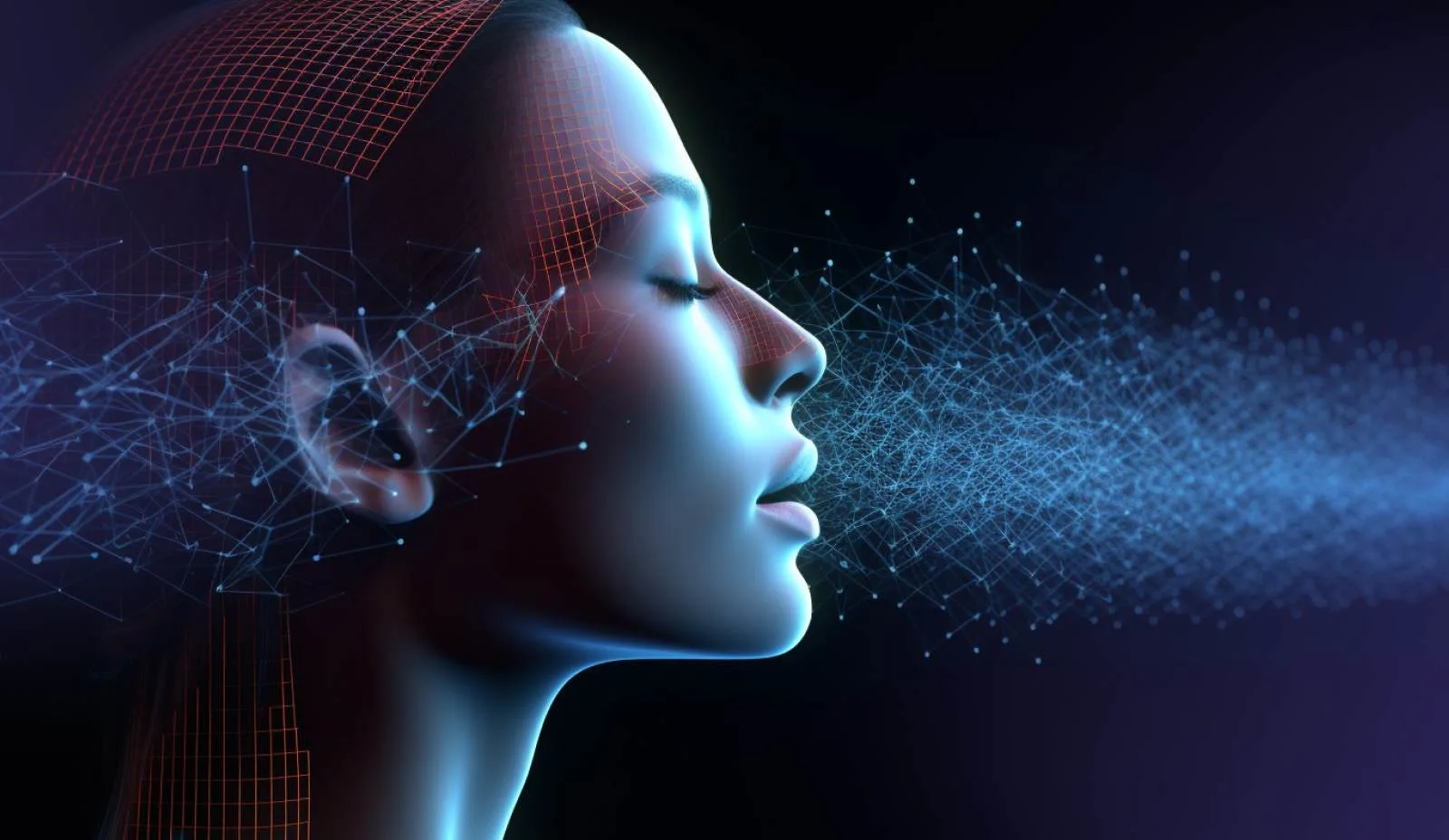
Not likely, at least not completely.
AI can imitate voices, but it can’t feel. It doesn’t know heartbreak, excitement, or anxiety. While it may fill a role in production or experimentation, the heart of music is still human. That said, AI will likely become a regular tool in the music creation process, just like autotune or digital mixing did.
The Future of AI in Music
Looking ahead, AI is poised to change how we think about music:
- Artists may license their own AI voice models for fans to use.
- Labels might offer virtual concerts using AI-generated performances.
- Musicians could blend AI vocals with their own for unique hybrid sounds.
- Music learning could be fully interactive with personalized AI feedback.
The line between technology and creativity will blur further. And for creators, that’s a thrilling place to be.
FAQs About AI Voice Song Covers
- Can anyone make an AI voice song cover?
Yes! With user-friendly tools, anyone can generate a cover, even with no musical experience. - Do I need expensive software?
Not at all. Many free or low-cost AI platforms are available online. - How close does the voice sound to the real singer?
Very close, depending on the tool and training data. Some AI vocals can sound nearly indistinguishable from the real artist. - Can I use my own voice?
Yes. Some tools allow you to train the AI on your voice and generate covers in your own singing style. - What genres work best with AI covers?
Pop, rap, EDM, and ballads tend to work well. Complex genres like jazz or opera are improving but may still lack finesse.
Final Thoughts on AI Voice Song Covers
The AI voice song cover phenomenon is more than a passing trend, it’s a revolution in how music is created, shared, and reimagined. With tools getting smarter and more accessible, the only real limit is your imagination.
Whether you’re making music for fun, creating for fans, or experimenting with your own sound, AI gives you the power to bring any voice to any song. Just remember: with that power comes responsibility.
So, if you’ve got a song stuck in your head and a dream voice to match, it might just be time to let AI sing it for you.

